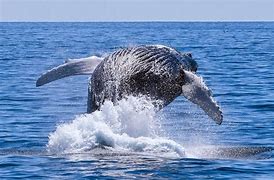APA-Cape Town (South Africa) South Africa’s marine scientists are celebrating the return of large numbers of whales along the country’s east and west coast waters during the annual migration of the Antarctica whales, a development attributed to a worldwide ban on commercial whaling imposed some 37 years ago in the world’s oceans.
According to marine scientist Maryke Musson on Monday, recent counts revealed a significant increase in whale numbers – with estimates reaching about 30,000 animals of all types of species, led by the humpback whale.
This is in contrast to the 1970s when a mere 5,600 humpback whales were spotted along the coastline, Musson said.
He attributed this encouraging resurgence to the cessation of whale hunting, which allowed the species a fair chance to rebuild their populations.
The scientist said the recovery of these marine mammals was not just a matter of numbers, it also had far-reaching ecological implications.
Whales played a critical role in the ocean ecosystem, serving as vital components in maintaining its delicate balance, he said.
Musson highlighted the importance of whales’ feeding habits, explaining that they consumed large amounts of zooplankton, which they then digested as a meal.
One of the most vital roles they played was acting as carbon sinks. By absorbing carbon dioxide from the atmosphere, whales contributed significantly to mitigating the impact of climate change, he said.
NM/jn/APA


